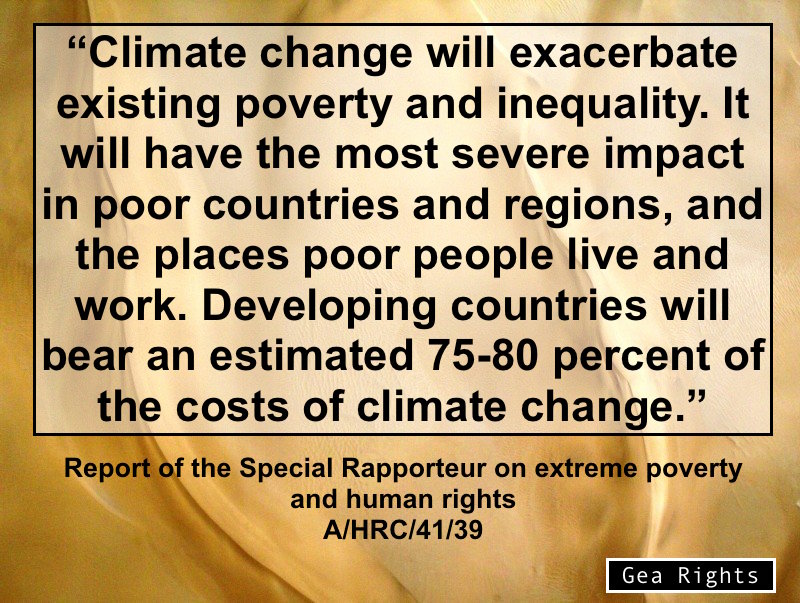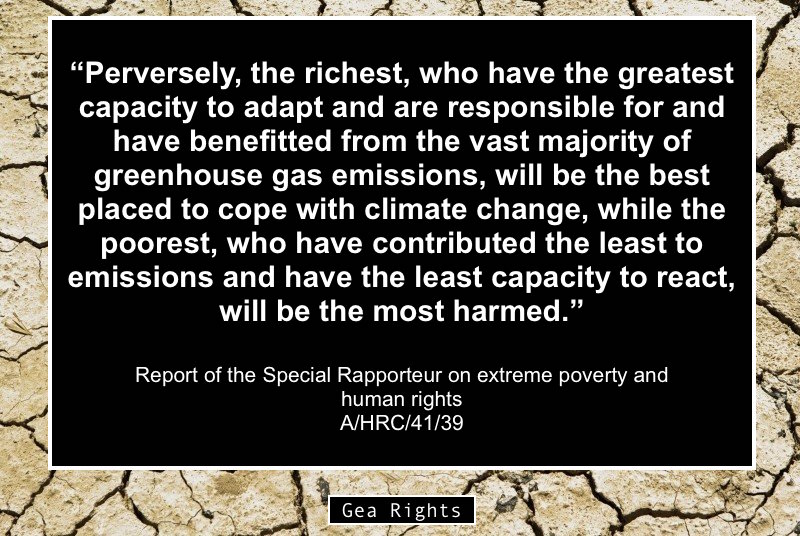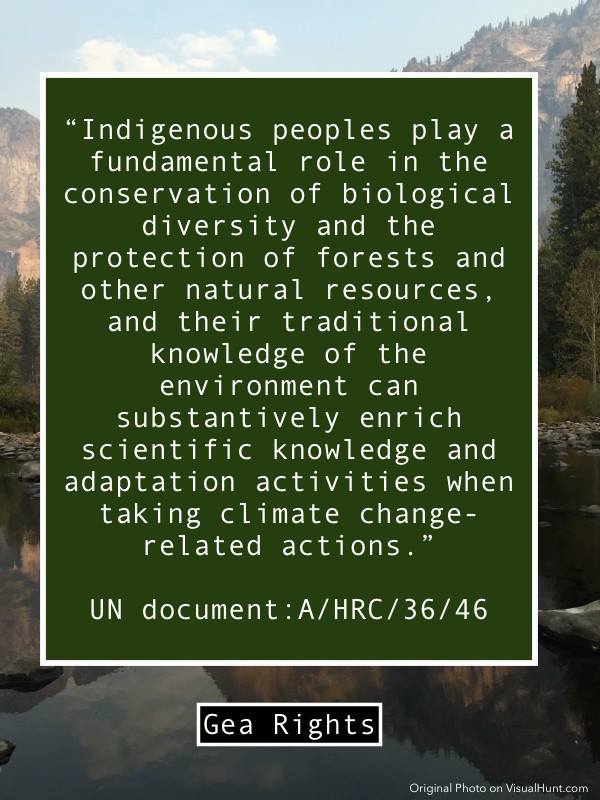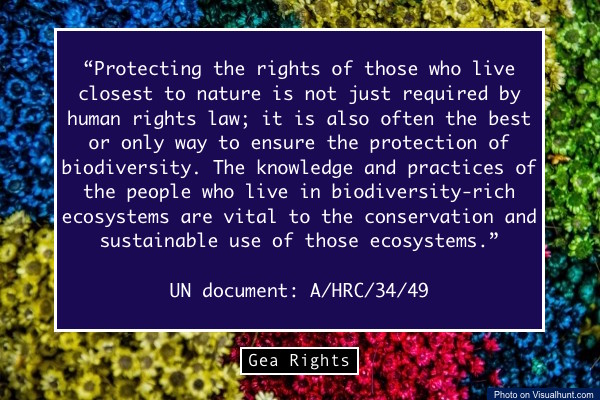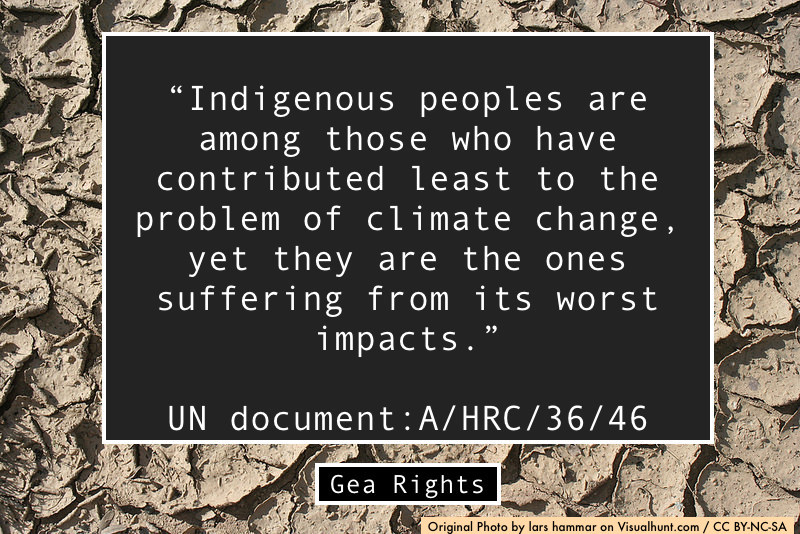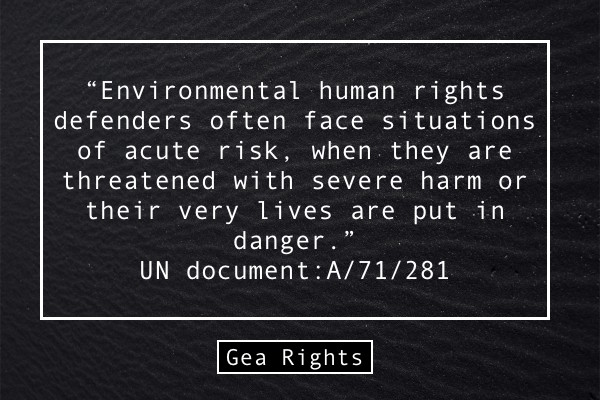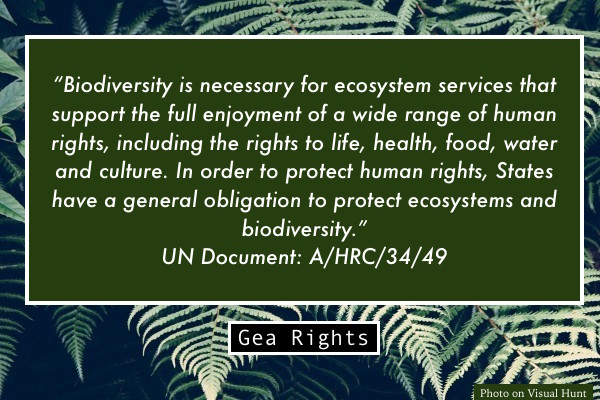Please read also: Indigenous Peoples as Earth defenders and legal innovators – the Rights of Nature
The Ecuadorian Constitution, adopted in 2008, affirms the importance of Pachamama in its Preamble (“Celebrando a la naturaleza, la Pacha Mama, de la que somos parte y que es vital para nuestra existencia”) and in Article 71 states:
“La naturaleza o Pacha Mama, donde se reproduce y realiza la vida, tiene derecho a que se respete integralmente su existencia y el mantenimiento y regeneración de sus ciclos vitales, estructura, funciones y procesos evolutivos […]”
Trad: “Nature, or Pacha Mama, where life is reproduced and occurs, has the right to integral respect for its existence and for the maintenance and regeneration of its life cycles, structure, functions and evolutionary process”
In Article 72, it affirms that Nature has the right to be restored.
The Bolivian Constitution, adopted in 2009, starts with a strong statement on the sacredness of Mother Earth:
“En tiempos inmemoriales se erigieron montañas, se desplazaron ríos, se formaron lagos. Nuestra amazonia, nuestro chaco, nuestro altiplano y nuestros llanos y valles se cubrieron de verdores y flores. Poblamos esta sagrada Madre Tierra con rostros diferentes, y comprendimos desde entonces la pluralidad vigente de todas las cosas y nuestra diversidad como seres y culturas. Así conformamos nuestros pueblos, y jamás comprendimos el racismo hasta que lo sufrimos desde los funestos tiempos de la colonia.”
Trad: “In immemorial times mountains arose, rivers moved, and lakes formed. Our Amazonia, our chaco, our highlands, and our plains and valleys were covered with greenery and flowers. We populated this sacred Mother Earth with different faces, and since then we have understood the plurality that exists in all things and in our diversity as human beings and cultures. Thus our peoples were formed, and we never knew racism until we were subjected to it during the terrible times of colonialism”
On December 2010 the Legislative Assembly of Bolivia approved the Law 071, “Ley de Derechos de la Madre Tierra” aimed at the acknowledgment of the rights of Mother Earth and of the obligations of the State and society.
Mother Earth is considered as the dynamic living system made up of the indivisible community of all living systems, interrelated, interdependent and complementary, sharing a common destiny.
Mother Earth is considered as sacred, in accordance with the cosmovision of indigenous peoples.
For the purposes of the protection of its rights, Mother Earth adopts the character of collective subject of public interest.
Mother Earth and all its components, including human communities, are holders of all the inherent rights recognized in the Law. The application of the rights of Mother Earth will take into account the specificities and particularities of its various components. The rights established in the Law do not limit the existence of other rights of Mother Earth.
All the Bolivians can exercise the rights established in the Law.
The Law recognizes the rights of Mother Earth:
- To life;
- To the diversity of life;
- To water;
- To clean air;
- To equilibrium;
- To restoration;
- To live free of contamination.
The Law also identifies the obligations of the State and of the people, such as: the development of public policies aimed at the protection of these rights; the development of policies to ensure long-term energy sovereignty; the promotion of peace and the eradication of the nuclear weapons and other weapons and mass destruction; the promotion of harmony in Mother Earth and the active, personal or collective participation in the generation of proposals.
The Mother Earth Ombudsman’s Office (Defensoría de la Madre Tierra) is created, with the mission to ensure the validity, promotion, diffusion and fulfillment of the rights of Mother Earth, as established in the Law.
The Law 300/2012 “ Ley Marco de la Madre Tierra y Desarrollo Integral para Vivir Bien” furtherly implemented and developed the content of Law 071/2010.
(Photo by Ibar Silva on Visual hunt / CC BY-NC-ND)
